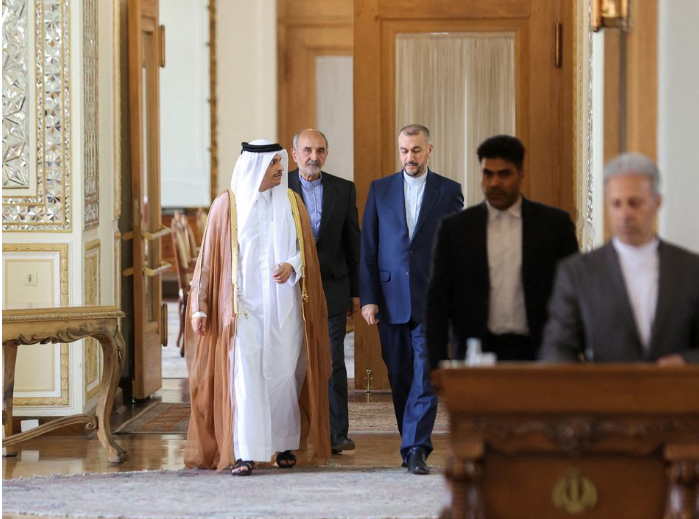The sources clarified that these meetings do not resemble the shuttle diplomacy conducted by Qatar in Doha earlier this year, which ultimately led to the U.S.-Iran prisoner exchange on Monday.
Qatar, a wealthy Gulf Arab state with diplomatic aspirations, is actively urging both sides to engage in further discussions and reach mutual “understandings.” Previous reports by Reuters had highlighted Qatar’s role in this diplomatic initiative.
One source indicated that these meetings took place on Monday and Tuesday in New York, coinciding with the annual United Nations General Assembly session. The second source, a diplomat based in the Middle East who was briefed on the matter, confirmed that additional bilateral talks were planned for this week but did not provide specific details.
The diplomat characterized the meetings in New York as “talks for talks,” with the primary objective being to establish a foundation for future indirect negotiations that could lead to an “understanding” regarding the nuclear issue.
As of now, there has been no official response or comment from Iranian, Qatari, or U.S. spokespersons regarding these meetings.
The relationship between the United States and Iran has been marked by longstanding hostilities, which escalated significantly in 2018 when then-President Donald Trump withdrew from the 2015 nuclear deal designed to curb Iran’s nuclear ambitions. The U.S. also intensified sanctions against Iran during this period.
Washington has expressed suspicions that Iran’s nuclear program may be aimed at developing nuclear weapons, an accusation vehemently denied by Iran. Additionally, the United States has raised concerns about Iran supplying one-way attack drones to Russia for potential use against Ukraine, a claim Iran has refuted.
Efforts by the Biden administration to revive the Iran nuclear deal have encountered significant challenges, with many diplomats now considering it irreparable due to Iran’s advancements in its nuclear program.
U.S. officials have been cautious in responding to inquiries about the possibility of indirect U.S.-Iran talks this week. They have neither confirmed nor denied such discussions while emphasizing their belief in diplomacy as the most effective approach to address the Iran nuclear issue.
Secretary of State Antony Blinken commented on Monday, stating, “When it comes to perhaps the number one issue of concern, which is Iran’s nuclear program, we continue to believe that diplomacy is the best way to get a sustainable, effective result. We’ll continue to see if there are opportunities for that. At this moment, we’re not engaged on that, but we’ll see in the future if there are opportunities.”
A European diplomat expressed scepticism about whether Qatar raised the nuclear and drone issues in these bilateral meetings, particularly regarding Iran’s atomic program. They noted that mediation on nuclear matters has typically been handled more by Oman.
These developments suggest ongoing diplomatic efforts to address critical issues, despite the complexities and challenges involved in U.S.-Iran relations and the broader Middle East region.








 India
India












